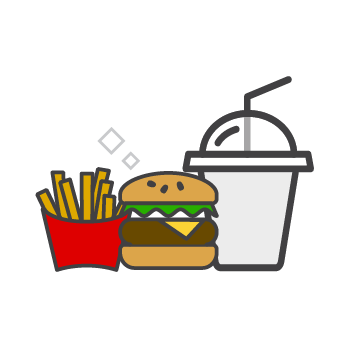Yello Takes A Look at Some of The Key Questions That Surround Socialising During Covid-19
by Carolyn Lee Apr 20, 2020

Social distancing, quarantine, curfews and self-isolation are some of the buzzwords that are linked to the Covid-19 pandemic.
There is substantial information on what the disease is, how it is evolving and the protective measures that could reduce the risk of transmission.
However, there are still a few areas that some persons need clarity on.
These include the wearing of face masks and gloves, socialising with family and friends, and intimacy between partners.
Yello spoke with Nurse Trudyan Hardware RN about some of these concerns.
Nurse Hardware has worked extensively within the healthcare industry for over 22 years.
She provides some insight on what persons can do to continue to stay safe during this pandemic.
What has been the response from persons at your job and the immediate community?
Most persons, including the homeless, are aware of what the disease is because of early sensitisation and education. They are aware of the dangers of what the disease can do and how they can protect themselves.
Should healthy people wear face masks?
As the disease evolves, there is new information on the use of face masks. It is imperative that persons obey the guidelines that are outlined by the government and healthcare authorities.
In Jamaica, the Ministry of Health and Wellness has recommended the use of face masks by:
1. Persons who are ill with coughing and sneezing;
2. Persons who are quarantined or isolated at home with or without respiratory symptoms and household members who care for the person, or are in the same house;
3. Persons who have had Covid-19 and have been discharged from the hospital should wear a mask for two weeks; and
4. Elderly and persons with chronic illnesses, who are at high risk, if infected, of developing severe illness and complications.
According to the Ministry, members of the public are at highest risk of exposure to droplets emitted by infected persons in crowded situations, and where these situations cannot be avoided, wearing a mask will decrease the likelihood of exposure.
For a detailed breakdown of the Ministry’s recommendations, visit their website.
Can I still have friends or family over?
Caution and good judgment should prevail.
As we enter the “community spread” phase of the virus, a person may contract the virus without having encountered persons who have travelled from a country with confirmed cases.
The danger lies in the fact that some persons are asymptomatic and can still spread it. The best way to prevent contracting the virus is to perform good hand and respiratory hygiene, social distancing and limiting contact to the members of one’s household.
In some cases, even in this group, self-isolation is necessary if/when someone becomes ill with the virus.
Monitor your children to ensure that they are not in contact with other persons, including other children.
Will wearing a face mask and gloves effectively protect me?
The face mask may offer some benefits in helping to prevent the spread of the disease when “donning and doffing” the mask is done correctly.
This is the process of putting on and removing the mask properly to prevent contamination.
The surgical masks and the N95 masks are most effective. However, these masks are limited and are reserved for members of the healthcare team who are on the frontlines.
Homemade masks may offer some protection but must be worn correctly. They must be removed, washed, disinfected and ironed after each use.
Gloves can offer a false sense of security. Handwashing is the best way to eliminate germs.
Sometimes persons may forget to change the gloves and keep them on for extended periods. This can cause cross-contamination, which may still spread the virus.
They may also forget to wash their hands after removing the gloves.
Gloves should be worn in special circumstances if you are taking care of someone who is ill or if you are cleaning/sanitising. Gloves must be discarded after use.
Should I report persons who are displaying symptoms to the authorities?
Persons who are displaying signs and symptoms of the virus can contribute to the disease being easily transmitted to others, if they are not quarantined.
The Ministry of Health and Wellness has a hotline that persons can call to report persons that they suspect may have the virus anonymously.
The toll-free number is 888-ONE-LOVE (663-5683). You may also send an email to one of the following email addresses – [email protected] or [email protected].
They will provide further guidance on what can be done in these cases.
My maid lives off-property. Should I still ask my maid to continue working?
There may be special cases where the elderly or infirmed may need assistance or additional support. In this case, it is a judgment call.
If the individual is seriously ill, the hospital may be the best place for them.
If they are discharged and need to be at home, they should disclose their condition and utilise the protective measures in place such as self-isolation.
They should also ensure that their workers have adequate protective gear to minimise their risk of contracting the virus.
Is it OK to be sexually intimate with my partner?
This is a very personal and difficult question since it is a decision that a couple needs to make.
The World Health Organization (WHO) states that one of the ways in which the virus can be transmitted is from person to person through small droplets from the nose or mouth which are spread when a person with Covid-19 coughs or exhales.
While the disease is not transmitted genitally, during intimacy, kissing and heavy breathing can lead to transmission if your partner is infected.
Since some persons can be asymptomatic, it may be a good idea to refrain unless both persons have been tested for and cleared of the virus.
Do you have any last bit of advice to share?
We are all experiencing this pandemic together. We are asking ourselves and people we love to isolate, which is challenging since we are inherently social beings accustomed to company and touch.
The best form of love that we can offer at this time to our loved ones is the presence of mind. This means caring enough to keep your distance since socialisation is still possible within the parameters of the guidelines that our authorities have outlined for us to follow.
Let us continue to stay safe and support each other as we deal with this pandemic.
Additional sources: Ministry of Health and Wellness, WHO and Registered Nurse RN.








